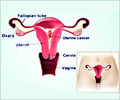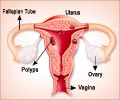Discover the latest research on endometrial cancer disparities among African-Descent women. Explore social factors, regional differences, and risks.
- Black women in the US face higher endometrial cancer rates, but regional differences among African-Descent populations exist
- Social factors play a role in the disparities, highlighting the need for comprehensive data collection and assessment
- Research emphasizes the importance of investigating risk factors for the aggressive form of endometrial cancer
Endometrial cancer risk and trends among distinct African descent populations
Go to source). However, most study has focused on Black women as a whole, and there is little information on individual African-descent subpopulations around the world. Researchers from the Sylvester Comprehensive Cancer Center and the University of Miami Miller School of Medicine conducted a new study that compared the overall incidence and trends for endometrial cancer among African-descent women in the United States (Florida) and the French Caribbean, specifically the islands of Martinique and Guadeloupe, where the majority of residents are Black or mixed-race and quality health data is available.
Cracking Endometrial Cancer Disparities: Factors Beyond Ancestry Explored
Their study, published in Cancer, a peer-reviewed journal of the American Cancer Society, discovered that endometrial cancer rates are related to factors other than ancestry, such as diet, psychosocial and physiological chronic stress, and neighborhood/built environmental factors, among others.“We need to disentangle the endometrial cancer disparities among Black women by focusing more on subpopulations, specifically on differences between countries and their associated socioeconomic factors while concentrating on patterns for the deadlier non-endometrioid subtype,” said Heidy N. Medina, Ph.D., MPH, researcher with UM’s Miller School of Medicine and the study’s corresponding author.
Endometrial cancer was the fourth most frequent cancer in the United States in 2022 (2✔ ✔Trusted Source
Uterine Cancer: Statistics
Go to source). According to the authors, one out of every ten newly diagnosed cases is a lady of African heritage. In the United States, black women have a greater incidence than white women, and their rates are rising faster.
Medina and colleagues analyzed data on nearly 35,000 endometrial cancer cases from Florida and the French Caribbean from 2005 to 2018, including Frank Penedo, Ph.D., Sylvester's associate director for Cancer Survivorship and Translational Behavioral Sciences, Tulay Koru-Sengul, PhD, Matthew P. Schlumbrecht, M.D., MPH, and senior author Paulo S. Pinheiro, MD, Ph.D. Among the key findings were:
- According to existing information, black women in the United States had a greater incidence of endometrial cancer and its more aggressive non-endometrioid subtype than white women.
- Surprisingly, both endometrioid and non-endometrioid subtypes were less common among French Caribbean women.
- Endometrioid uterine cancer increased by 1.8% for black women in the United States and 1.2% yearly for white women, with no change found for French Caribbean women.
- Rates of the more deadly non-endometrioid cancer subtype increased across all demographics, with Black women in the United States experiencing the largest increase.
Endometrial Cancer Among African-Descent Women
“Our study supports current evidence that Black women in the U.S. are disproportionately affected by endometrial cancer, but also highlights key differences among African-descent subpopulations that should not be overlooked,” Penedo explained. “These differences among Black women in different regions of the world are partly due to social factors and not solely related to genetic factors.”Dr. Pinheiro, a Sylvester cancer epidemiologist, agreed. “This research shows cancer trends for U.S. Black women cannot be generalized to other African-descent populations worldwide where limited data exists,” he said. “The study underscores the importance of improving data collection in specific regions to better assess cancer risks for different population groups.”
The researchers' next steps will be to compare the majority African-descent populations of the French Caribbean to those of the predominantly white French mainland in collaboration with our colleagues at the Université des Antilles, Clarisse Joachim, M.D., Ph.D., and Jacqueline Deloumeaux, M.D., Ph.D., to better pinpoint existing disparities.
References:
- Endometrial cancer risk and trends among distinct African descent populations - (https://acsjournals.onlinelibrary.wiley.com/doi/full/10.1002/cncr.34789)
- Uterine Cancer: Statistics - (https://www.cancer.net/cancer-types/uterine-cancer/statistics)
Source-Medindia
















